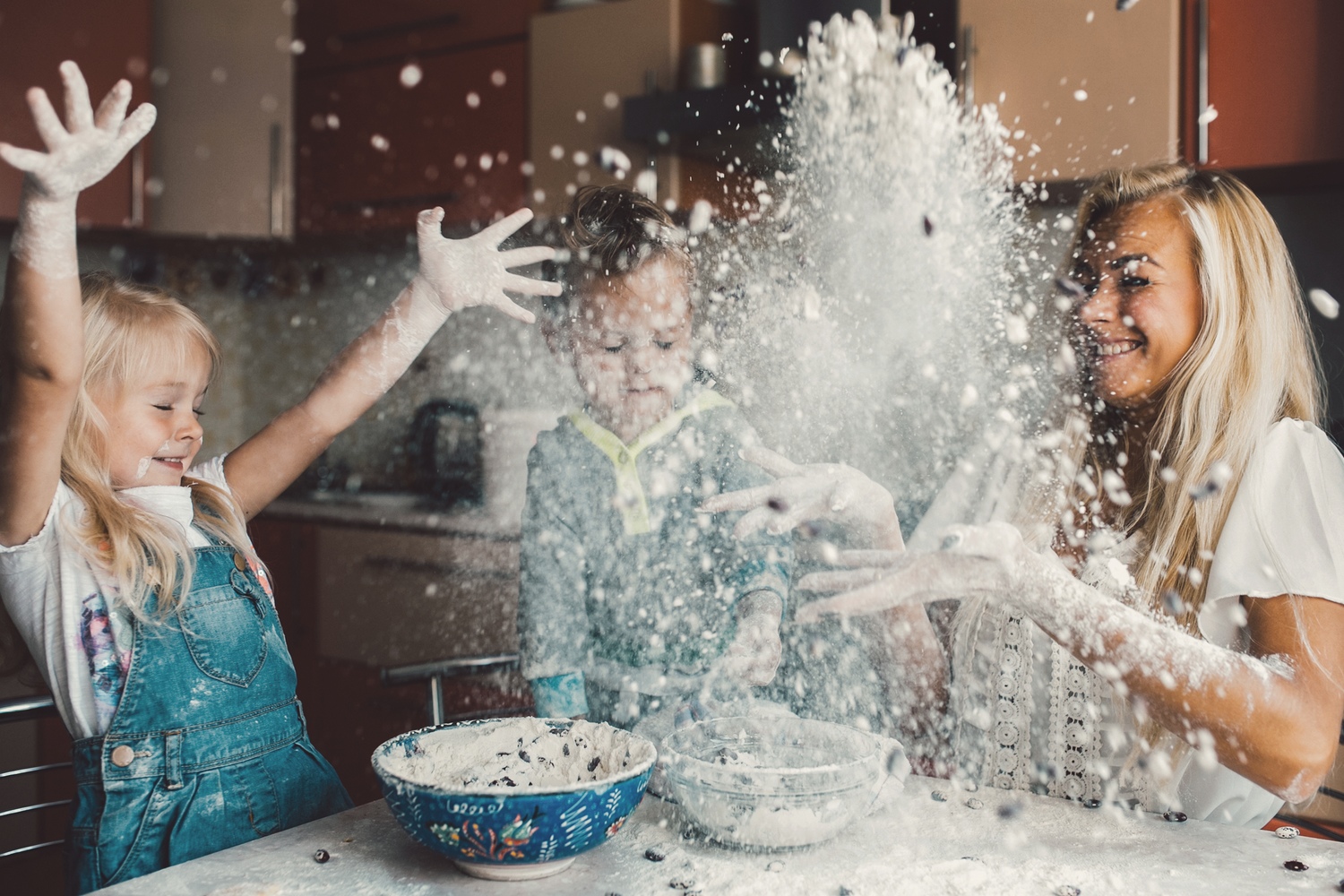
Caring for stone surfaces
How to preserve the beautiful exterior of your granite, marble or quartz worktop
Taking into consideration their appearance and ease of use, granite and quartz worktops are the best choice; however, to ensure worry-free everyday use and the long-term preservation of their beautiful appearance, it is useful to know a bit about the characteristics of these materials and some maintenance tips. Maintaining the perfect condition of the worktop requires no more than 30 minutes each year.
Mechanical damage and temperature
Even though we are talking about stone – which we associate in our everyday lives with strength – granite does have its weaknesses. During installation we support the worktops in such a way that their breakage is excluded; although, it is possible to cause damage through negligence or unfortunate accidents. This is true in particular for the edges of worktops, which, in the case of a strong blow, may lose pieces. Stone can be repaired, although the result will no longer be the same, and we would like to remind you that such damage is not covered by the warranty. Quartz has a clear advantage here, being more resistant to physical damage. We also don’t recommend climbing on worktops, for example, attempting to reach the highest kitchen cabinets. The worktop is more fragile in narrower sections – primarily around the sink and hobs – and the full weight of a person on the stone may cause it to fracture.

The durability of stone isn’t only a matter of the type of stone, but also the type of finishing used. The simplest and surest rule of thumb is, the denser (heavier) and smoother the material, the lower its absorbance, the more durable it will be.
Polished surfaces are considerably more resistant to staining than honed ones, but it is possible to destroy the shine of the stone beyond saving by using the wrong cleaning supplies or methods.
We always recommend using a cutting board because, even though knives sand other steel tools won’t scratch the stone worktop, repeated cutting without the use of a cutting board may result in the dulling of the shine of the polished surface, which can only be repaired using special tools. In addition, there is the danger that traces of metal use will be created on the surface, which are not scratches but are also impossible to remove without the use of specialised equipment.
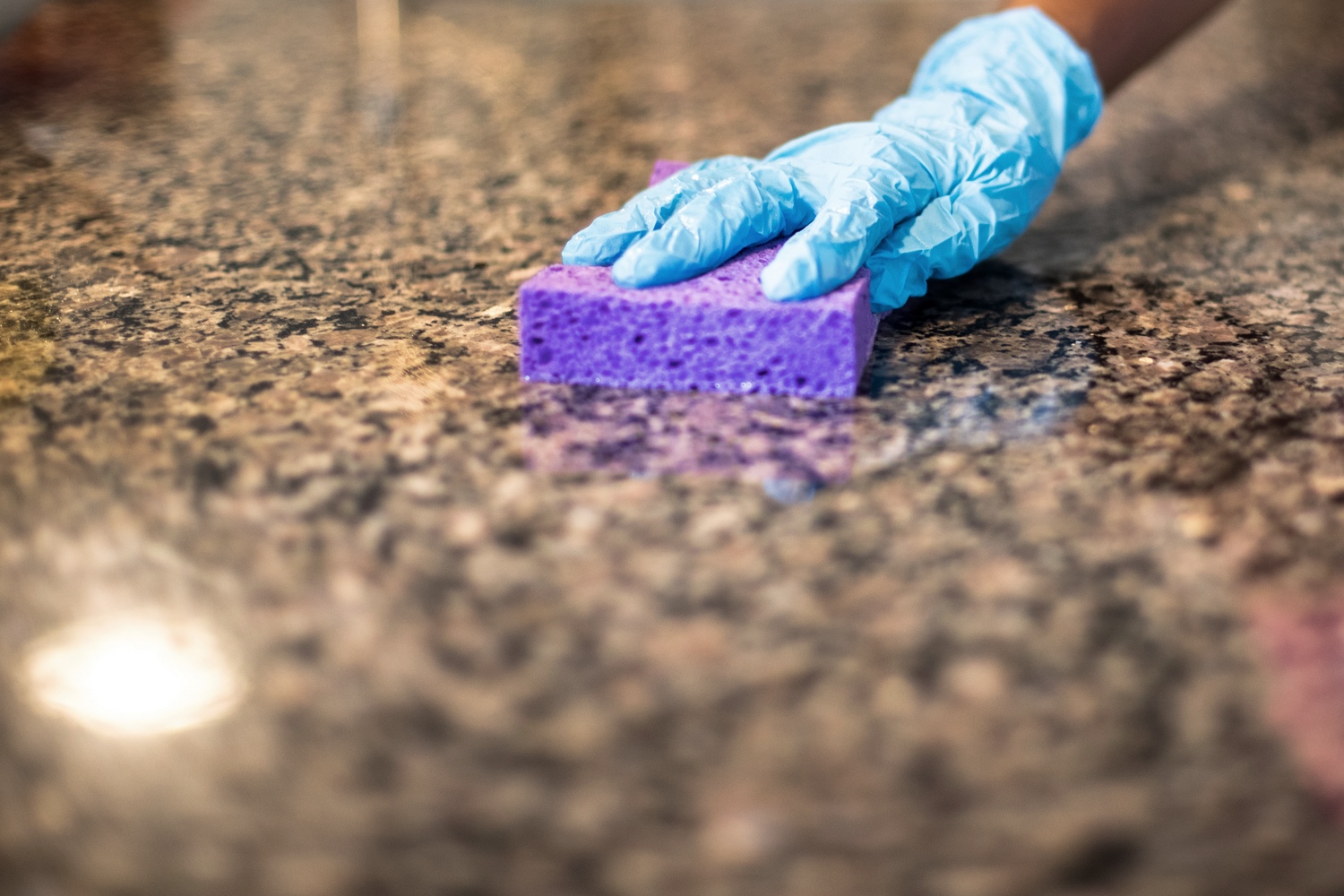
The stone surface is sensitive to abrasive materials – don’t use steel wool to clean it, and make sure that the cloth you are using is clean, since a random grain of sand can damage the surface.
In terms of heat, granite is not sensitive; however, the best thing is to use a trivet under a pot or pan that has been removed directly from a heat source – the reason being that pots and pans (especially, for example, clay oven pots) may have a rough bottom and could scratch the stone.
When it comes to quartz, the use of a trivet is mandatory, since a certain proportion of the pressed granite is glue, which may react when it comes in contact with an extremely hot object, and the worktop may also fracture in narrower sections (around the sink and hobs) as a result of thermal shock.
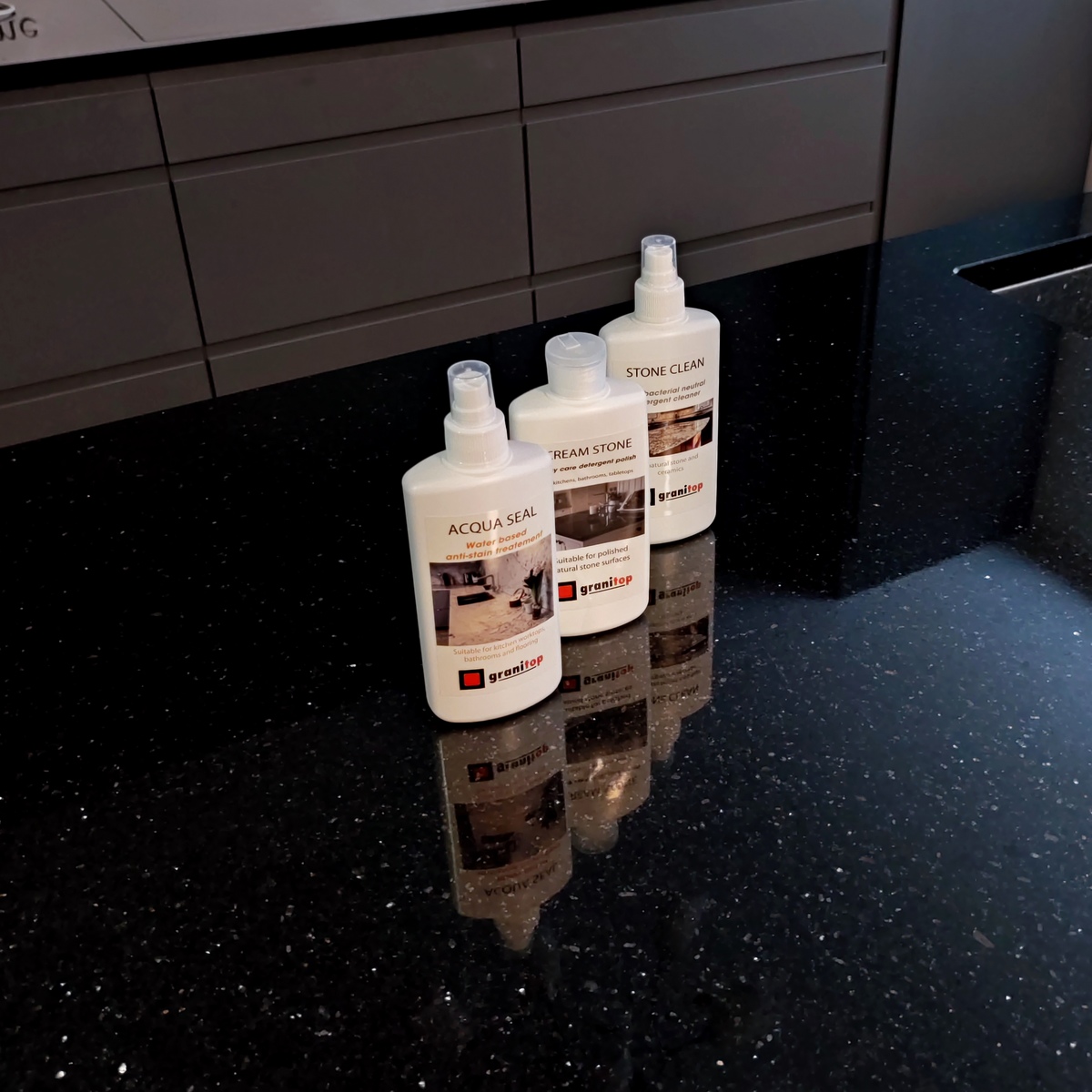
Everyday maintenance and stains
Nothing special is required for the everyday maintenance of your worktops. A regular moist cloth or a cleaning solution diluted in water or window cleaner can be used for cleaning, when necessary. Neutral (pH 7), slightly acidic (pH 4-6) or slightly base (pH 8-10) cleaning substances are suitable for granite and quartz surfaces; in the case of marble, acidic substances should be avoided. Favour the use of cleaning substances that are water based, since these are environmentally friendly and are not harmful to your health.
A cream scrubbing paste (which must not feel grainy when rubbed between the fingers) may be used for removing more stubborn stains on quartz, although in that case worktops should not be rubbed too strongly. When cleaning granite or marble, a scrubbing paste must not be used.
For the maintenance and cleaning of limestone or Terrazzo (which is made of natural ingredients and contains natural stone pieces), the same recommendations and detergents/tools apply as for marble. Ceramic is a very durable artificial stone and therefore does not require any special maintenance – wiping with a wet cloth is enough.
The best way to avoid stains is to clean the worktop immediately after spilling or splashing – the longer the substance is allowed to remain on the worktop the greater the likelihood that a difficult to remove stain will appear. In the case of lighter stones one must be more careful than with dark stones; also, honed stones are more sensitive than polished ones. Marble requires the greatest care. One must be careful with substances such as coffee, tea, red wine (and alcohol in general), oils, acidic fruits (lemons, oranges) and juices. In the case of stronger stains, we recommend that you contact us, since removing stains depends to a great extent on the type of stone and the substance responsible for causing the stain.
Special care
Dark granites and quartz do not require special care; however, in the case of light stones, special means must be used once or twice a year to ‘seal’ the stone surface. This makes the stone more resistant towards stains. Corresponding products available in building material stores, as well as products offered by us, are suitable for this purpose. Products which promise to return the stone’s original shine are only temporary in nature – worktops will remain shiny with the right care and use.
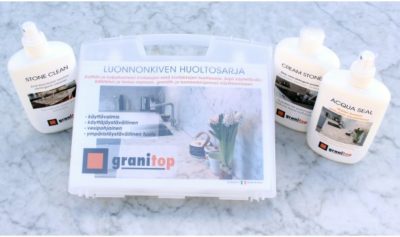
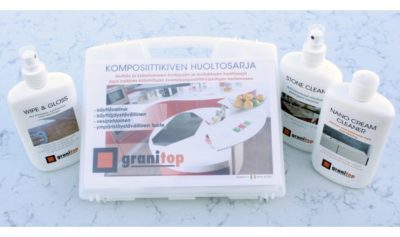
Please note! Make sure to always confirm the suitability of care products for your worktop and carefully read the accompanying instructions. Since stone care products are chemical substances, always follow the requirements for their safe use!
Do:
- Use a damp cloth or dust brush for cleaning the worktop regularly, remembering to dry the drops and puddles forming around the tap and sink.
- Use special purpose placemats, coasters and tablecloths under kitchenware (vases, trays and glasses). Even though some stones (granite, marble, limestone, ceramics) tolerate heat very well it’s better to use a trivet. Using a trivet is mandatory with quartz and terrazzo worktops!
- Always use a cutting board to protect the worktop from scratches.
- Try to remove any food stains as soon as possible. Use a neutral pH dishwashing liquid if necessary. Always rinse with plenty of water and dry off after washing!
- Consider using a cleaning agent meant for ceramic stovetops in special cases, unless the substance is gritty or acidic. Make sure to test the suitability and efficacy of the agent on a small, less visible, bit (such as your Granitop sample piece).
- Use a scraper made of soft plastic or sturdier rubber for dried food stains, gum, candle wax, glue, jam and syrup stains and such. Avoid scratching the surface with sharp objects to avoid scratch marks. If possible, rinse with plenty of water before and after (most likely there will be a stain on the damaged spot)
Do not:
- Use vinegar, bleach/chlorite, acetone, thinner, turpentine or acidic cleaning agents; even strong home chemicals meant for cleaning the bathroom or glass are not suitable for stone worktops. The surface of natural stone might get damaged so badly the worktop needs to be replaced.
- Scrub the worktop with abrasive pastes or rough cleaning cloths. The best tools for cleaning stone worktops are sponges, microfiber cloths and brushes with soft bristles. If the cloth or brush has been used to wash root vegetables or clean the sink, remember to make sure there’s no dirt or grains of sand in the fiber matrix or among the bristles as that might scratch the worktop.
- Do not mix different cleaning agents, even if the internet suggests it. Some chemical substances mix to produce toxic fumes.
The tools you’ll need for cleaning a stone worktop:
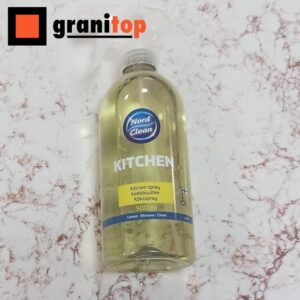 |
Spray bottle, mild dish soap |
|
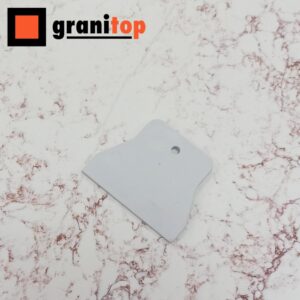 |
Plastic or rubber scraper |
|
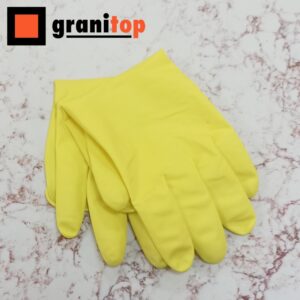 |
Rubber gloves |
|
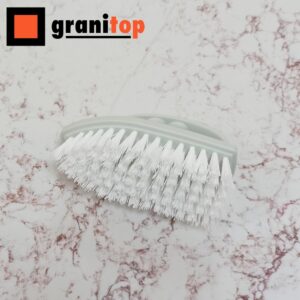 |
Brush with soft bristles |
|
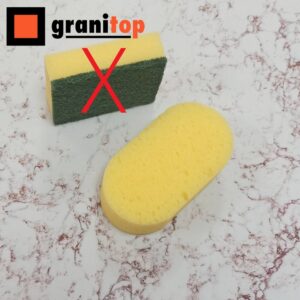 |
Dish washing sponge (without coarse fibers) |
|
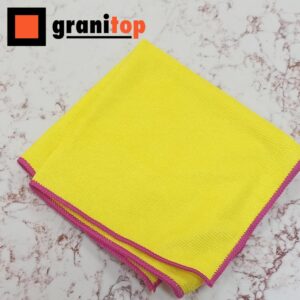 |
Microfiber cloth |
|
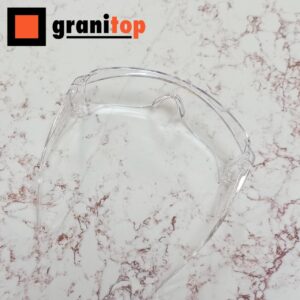 |
Protective glasses, if needed |
If you have any questions or would like additional information, then please call or write to us.
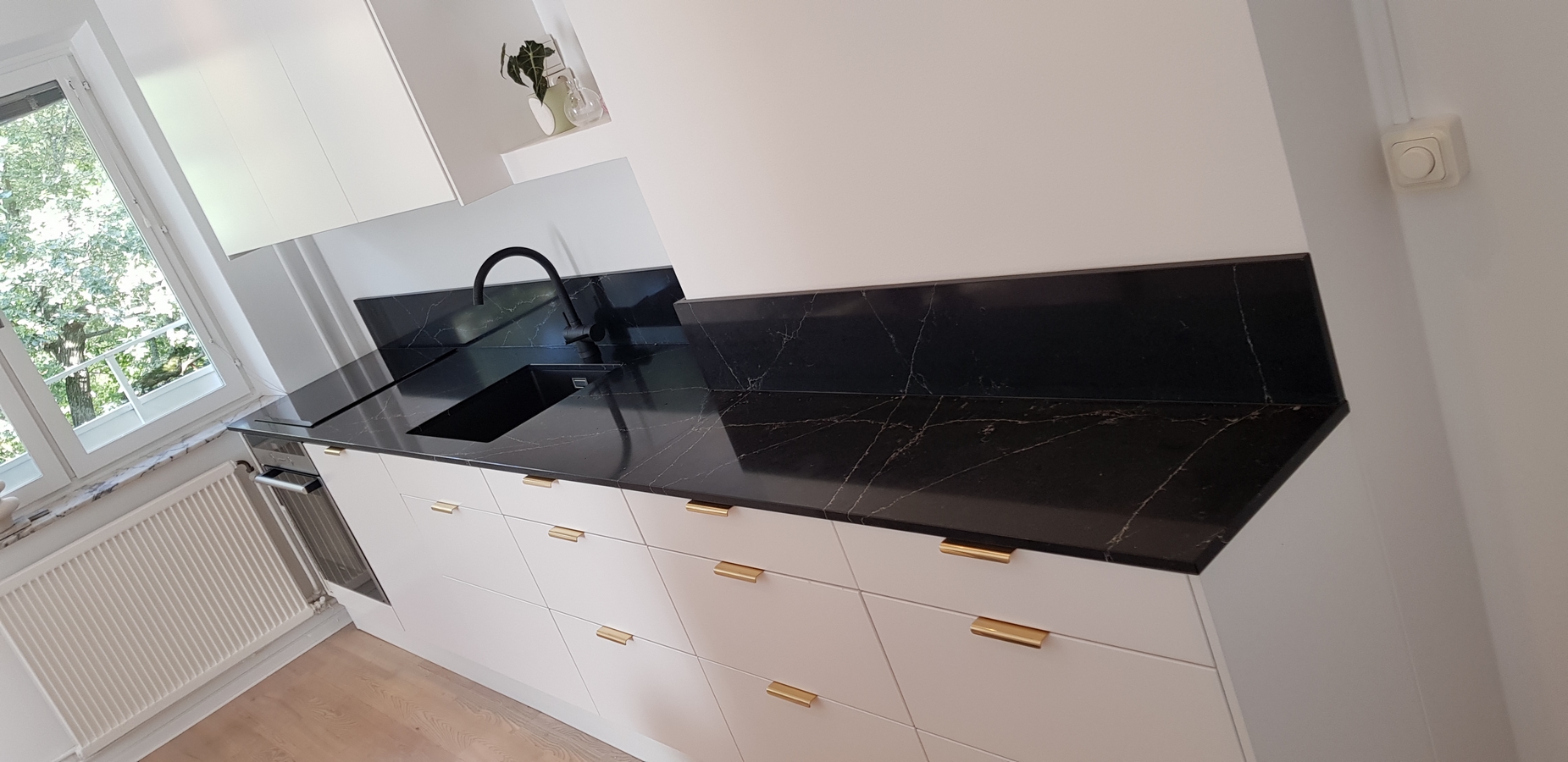
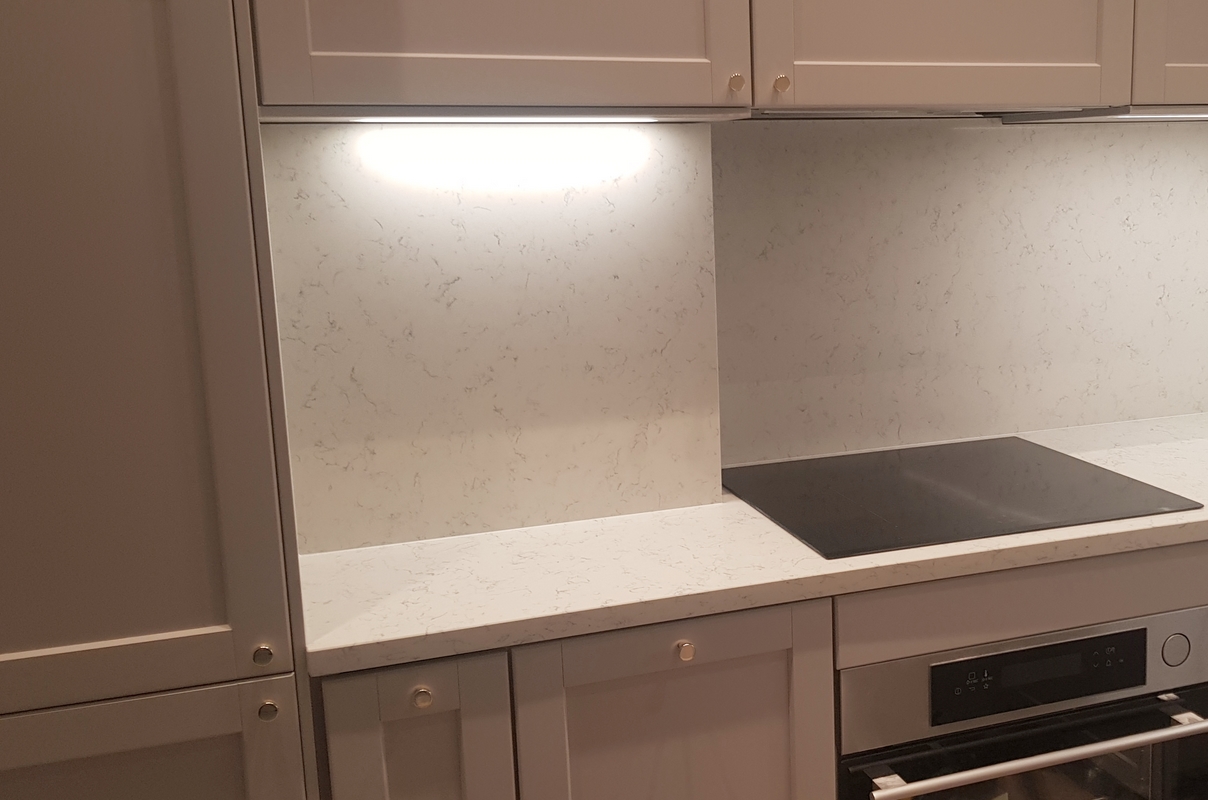
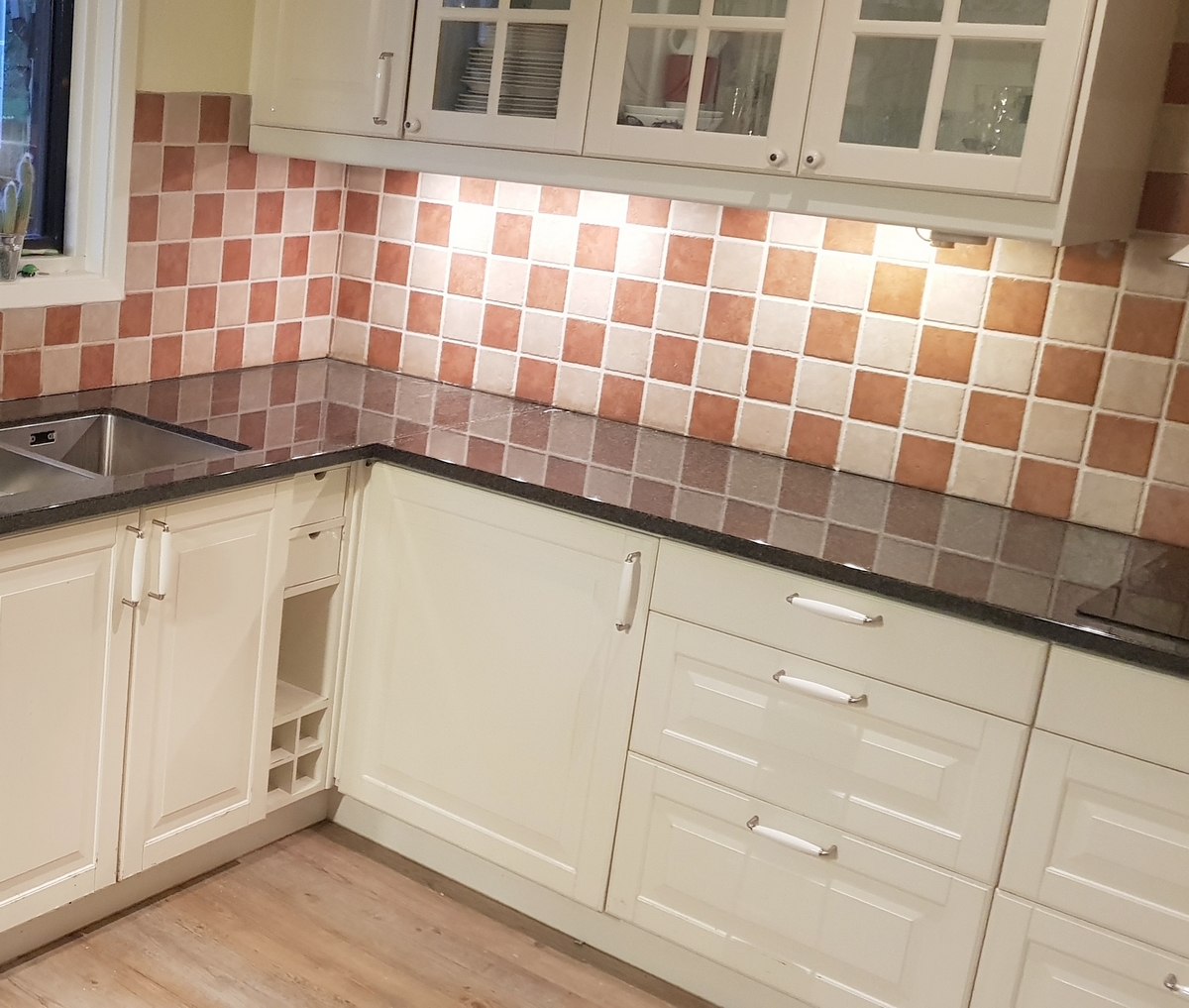
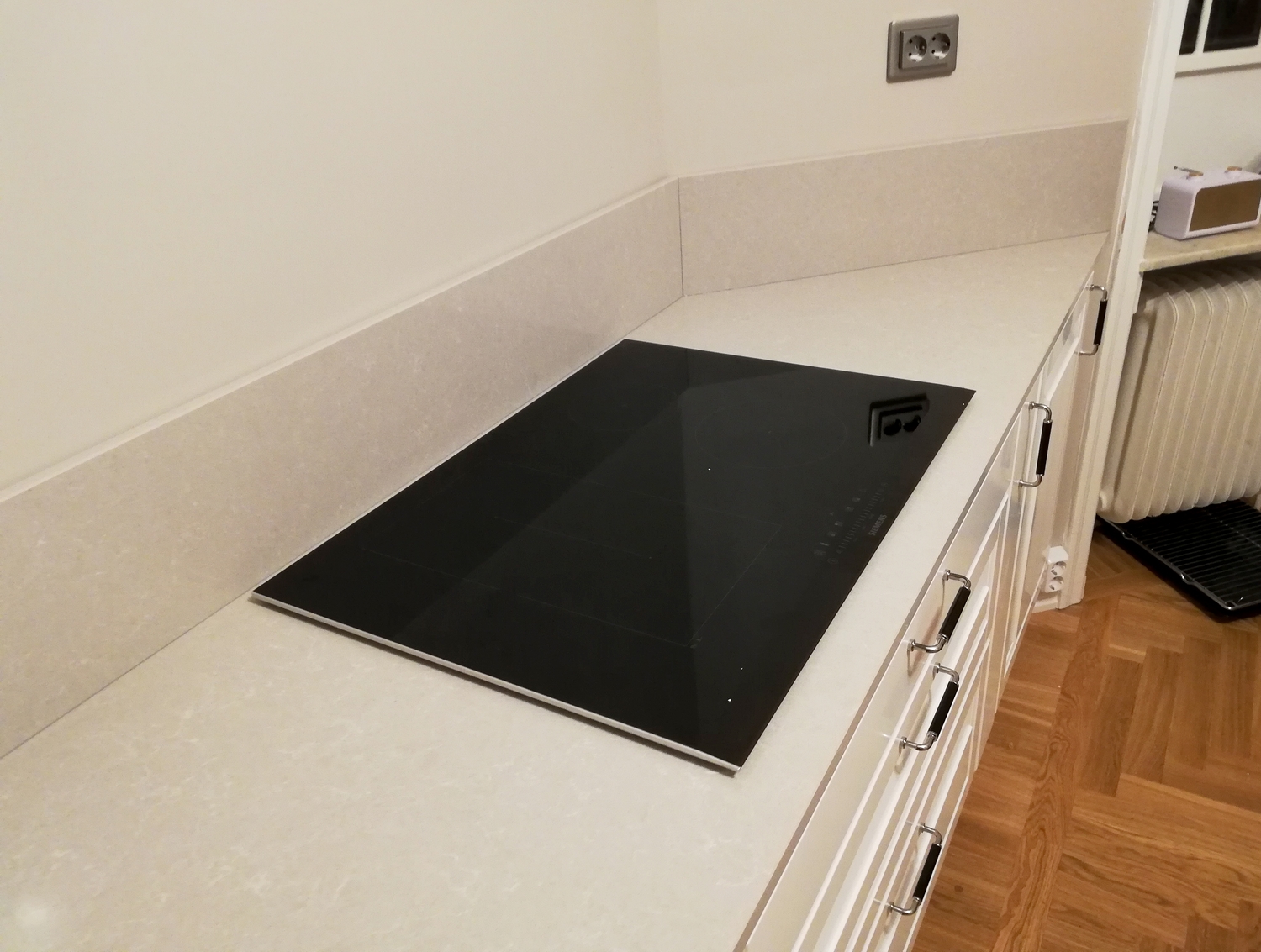
Tips to keep your worktop clean and beautiful
To freshen up your kitchen is to invest in your own happiness!
The most hygienic worktop is quartz
A clean home is easy!
How and with what can these worktops be maintained?
Liquids that have come into contact with the worktop should be dried immediately – this ensures that the surface of the stone will remain beautiful for a long time! Granitop also offers a selection of care products depending on the type of stone. A special stone care product could be applied to the surface of the worktop a couple of time each year.
How long do the worktops offered by Granitop last?
Granitop offers a 5-year warranty on all of our worktops. Some artificial stones even have a factory warranty of 10 – 25 years, although their durability certainly depends on the material, usage habits and maintenance of the stone worktop surface. However, if cared for correctly and prudently, the stone worktop will last for decades.

